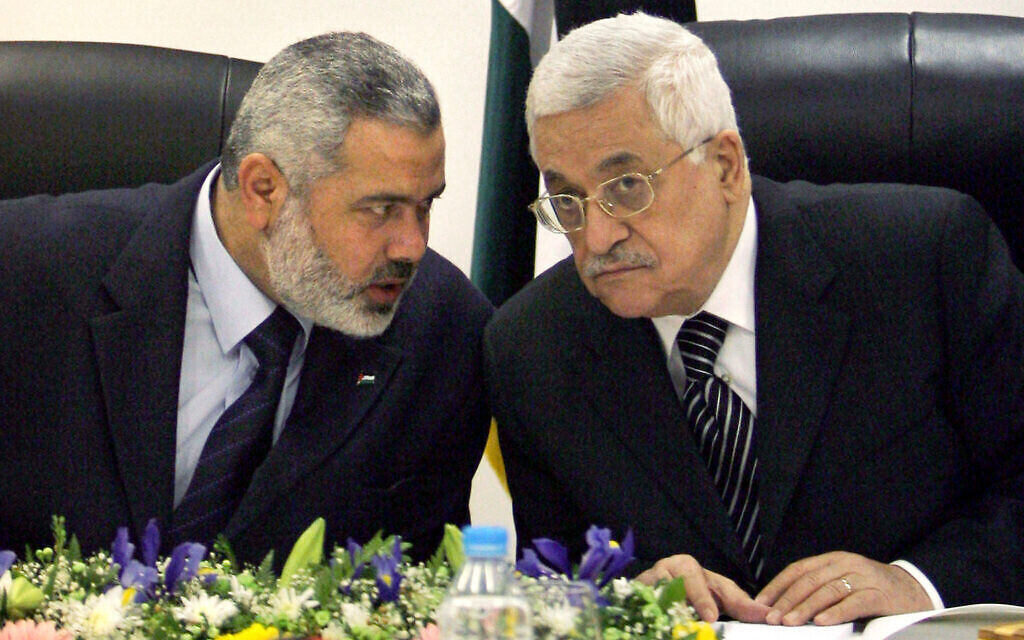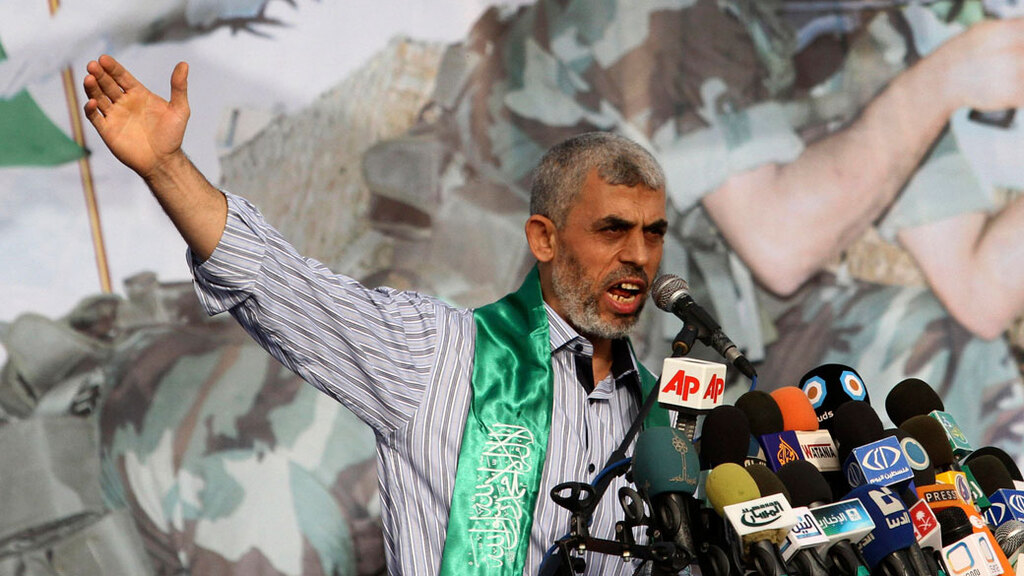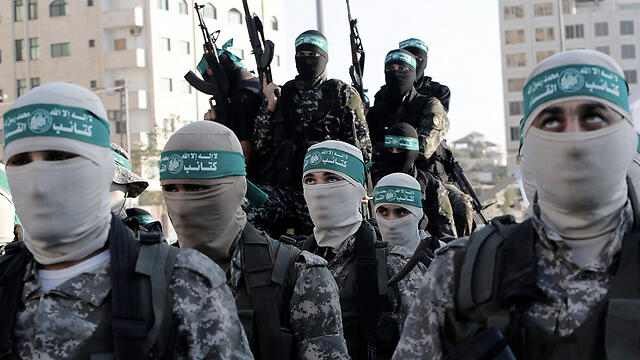Getting your Trinity Audio player ready...
Hamas firebrand Yehya Sinwar was re-elected on Wednesday as the Palestinian terror group’s leader in the Gaza Strip, leaving a figure closely aligned with the hardline wing in charge of the group's strategy in its main stronghold.
Bassem Naim, a senior Hamas figure, confirmed that Sinwar had fended off a challenge from Nizar Awadallah, one of Hamas' founders, to serve another four-year term.
In a statement issued by Awadallah, he stressed his support for Sinwar, saying: "We stand by his side in every position to achieve the goals of our project and our movement."
Sinwar is a former member of the group’s military wing, the Izz ad-Din al-Qassam Brigades, who spent over two decades in an Israeli prison after being convicted of murdering two Israelis.
He was released in a 2011 prisoner swap for IDF soldier Gilad Shalit, who was held captive by Hamas in Gaza for five years. Awadallah was a broker of the deal.
Sinwar's victory could have deep implications for Hamas' relations with Israel and other regional players. It also could impact upcoming Palestinian elections, the first in 15 years.
While he supports Hamas' opposition to co-existence with Israel, Sinwar has maintained a relatively stable standoff across the Gaza border and has also sought improved ties with Egypt.
"Sinwar's victory shows the man maintains a strong grip on things inside the movement, especially within its vital components such as the military wing," said Gaza political analyst Adnan Abu Amer.
"The win will enable Sinwar to pursue his policies, whether inside Gaza or with regional countries and the handling of the conflict with Israel."
Sinwar maintains close ties to the Hamas military wing and has often promoted a confrontational approach toward Israel.
The Gaza Strip is Hamas’ most important area of activity. The group, which opposes Israel’s existence, seized control of the territory from the Fatah-dominated Palestinian Authority in a bloody 2007 battle.
Since then, it has fought three wars and numerous skirmishes against Israel, holding on to power despite a crippling Israeli-Egyptian blockade that has devastated the economy.
Awadallah was one of Hamas’ founders in the late 1980s and has a strong connection to the group’s political leaders.
Hamas' political leaders have closer links to Qatar and Turkey and tend to be more pragmatic in their dealings with Israel. The military wing is closer to Iran and favors a more militant approach toward Israel.
Hamas has yet to elect a leader for the West Bank. Sources said his identity would be kept secret as protection against Israel or the administration of Palestinian President Mahmoud Abbas, a Hamas rival.
3 View gallery


Palestinian President Mahmoud Abbas, right, and Hamas leader Ismail Haniyeh
(Photo: AP)
Filling the position of Hamas' political chief, who also speaks for its military wing, will require more time. The overall leader of Hamas is Ismail Haniyeh, who is also based in Gaza.
Haniyeh is facing a challenge this time by the former head of the group, Khaled Meshaal, who lives in Qatar.



